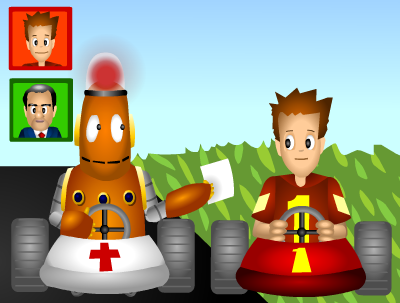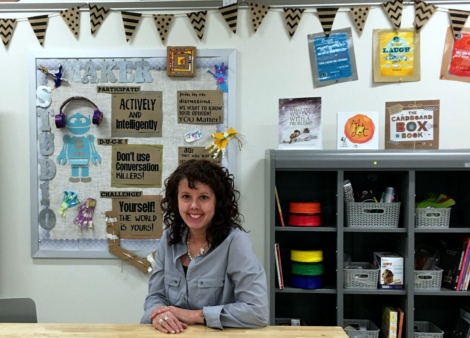
Weaving Literacy and Assessment into Game-Based Learning
Posted by cemignano on
BrainPOP’s Allisyn Levy shares her experience integrating assessment into game-based learning.
For a long time, I was on a hunt for an amazing English Language Arts game that tied into curriculum and the Common Core State Standards (CCSS). A big part of my role at BrainPOP® is vetting games for GameUp®, our online games portal. I focus a lot on working with teachers and students to play-test new games and features so we can shape our offerings to meet our audience’s needs.
For months my search continued, and for every huge handful of games we saw, only one or two were really gems. We did discover some outstanding Language Arts games, including Classroom Inc.’s TSN2, Learning Games Network’s Quandary, and many of the iCivics games, all featured on GameUp. But we started to realize that you can actually tie digital games across all subject areas into English Language Arts (ELA) using assessment.
In one of my favorite student challenges, I ask the class to create a “cheat sheet” or walk-through. This involves the kind of 21st-century skills the CCSS focus on, both in terms of ELA and literacy in the content areas. Quality digital games are a powerful way to teach the formulation of evidence-based arguments, for example. They allow students to demonstrate their knowledge of a content area situated in a meaningful experience. For a math game like Lure of the Labyrinth: Employee Lounge, from Maryland Public Television/MIT Education Arcade, in which no directions are presented to the players, teachers might challenge students to write a set of rules for the game. For iCivics’ Social Studies game Argument Wars, in which students play the role of a lawyer representing one side in a Supreme Court case, a natural assessment would be to have students write a persuasive essay after playing the game. Teachers and students have been very receptive to employing prompts like, “What was the most important decision you made in this game?” and “Describe one strategy you used in this game? How did it help you?”
Assessment doesn’t have to be boring, rigid, or standardized. When it comes to assessing your students, consider creative alternatives that allow your students to shine and enable you to gather and analyze meaningful data.
Be sure to visit our BrainPOP and the Common Core support page for more information.














